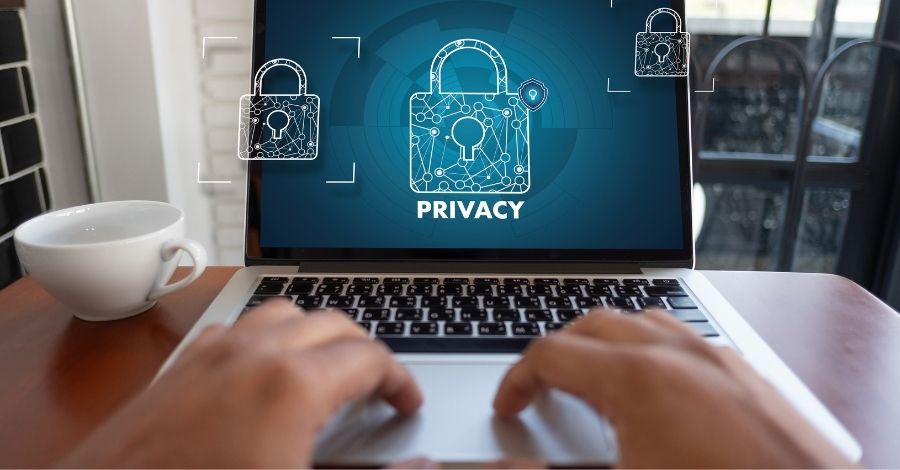In the technological world we live in, Privacy on Social Networks is a luxury for the few. Our privacy is invaded all the time, whether by our initiative, such as posting photos of private moments, or by websites and search engines that store the history of our lives.
However, not everyone likes the overexposure offered by the networks. The reasons for this vary, from the security risks that this exposure entails to disagreement over how tech giants use our data.
Who is responsible for privacy on social networks?
It’s common for users to blame the owners of social networks for the invasion of privacy they suffer. But is it really like that? Are we all tied up about how our lives and intimacies are exposed on the internet?
The answer is: no. Fortunately, there are a series of habits and methods that can be adopted to protect your data and your privacy on social networks. Join us as we show you what they are!
Protecting Privacy on Social Networks

Protect your devices with passwords
Although devices like smartphones and notebooks are abundant with personal data that allow anyone to define the profile and personality of the owner, many gadget owners still do not protect their devices with passwords.
It is worth reinforcing that most of the time, social networks are logged in on these devices. So, when they are not protected by passwords, anyone who has access to them has access to the social networks used on these gadgets.
Know when your name appears in Google searches
Who has never done an ego search on Google, looking for their name to see which sites it appears on the internet? And instead of performing this search from time to time, what if you received a warning whenever a new entry with your name was indexed on Google?
You can do this through Google Alerts. Just add your name – with variations, the name you use on social networks, etc., always with quotation marks – to the tool to be notified when new results with the term occur.
Log out of accounts when you leave

It is common for users to keep their accounts connected when they leave social networks on domestic devices. If you have this habit, it’s time to change it. To protect your privacy on social networks, always log out of connected accounts.
With this measure, you will be less tracked on the internet, and it also prevents other people from accessing your personal information when using your computer. Remember that logging out of accounts is essential on public computers.
Create strong passwords to maintain your privacy on social networks
In 2020, the most used password on the internet was, again, 123456. The top 10 most common passwords, moreover, stand out for their obviousness, including options like password; 12345; 123456789; 1111111; among others similar.
A weak password on your social network is an invitation for your account to be invaded by malicious people. Use strong passwords with uppercase and lowercase letters, numbers, and special characters. And be careful: do not repeat the same password for all networks.
Afraid of forgetting the password and not being able to access your accounts anymore? Use password manager apps.
Enable two-factor authentication

Social networking sites allow users to enable two-factor authentication. That is, to perform a new login to the tool, in addition to entering your password, you need to enter a code sent to a phone number or email.
Two-factor authentication provides an extra layer of protection, making it difficult for intruders to act. It is worth activating the feature also in email accounts and any other application that requires login and offers the option.
Change your privacy settings

All social networks have privacy settings that can be customized to the user’s liking. Explore the existing options to define the ideal level of privacy for you.
You can, for example, define that the content you post on your page is only viewed by those you accept as friends. In some of them, it is even possible to make lists defining which contacts will have access to certain content.
Use proxies or IP masks
If you are one of those who not only want to protect your privacy on social networks but also browse them without leaving traces that can be used by advertising sites and applications, a tip is to use proxies or IP masks.
The proxy works as an intermediary for internet access. When activated, before your device connects to a site, it connects to the proxy that makes the destination request to the server. The response returns to the proxy, which returns the connection to your device, making tracking difficult.
Protect your privacy, protect your personal data
In a world where exposure is valued, it is essential to act to protect our privacy. Personal data and information on social networks are objects of desire for companies and criminals.
This desired protection of intimacy can be achieved through the adoption of simple measures and new habits in everyday life. Remember that your data is your patrimony, so all care with them is necessary.
Keep following our blog and learn more about information security and data protection. Want to stay on top of all the news and incredible content from STW Brasil? Like our social media pages!
See you next time!





